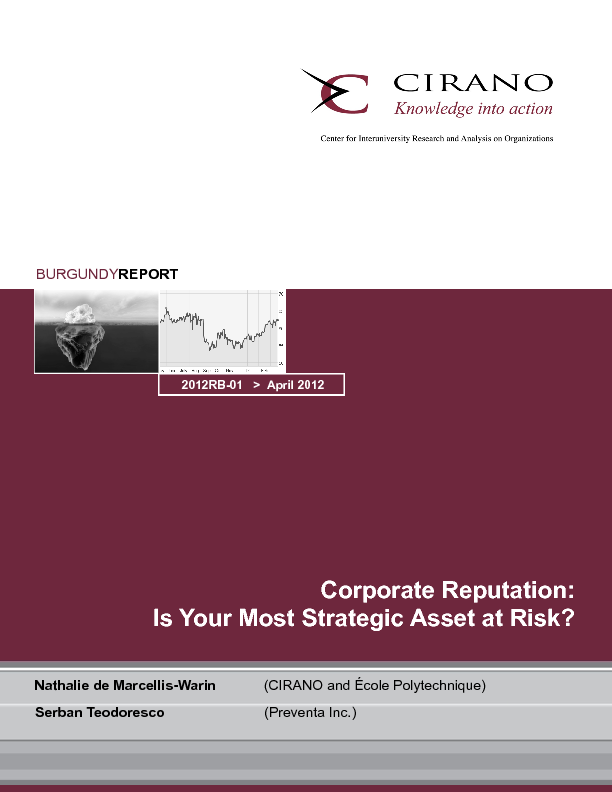Corporate Reputation: Is Your Most Strategic Asset at Risk?
Corporate reputation is increasingly identified as the most important strategic asset in value creation for a company. Scholarly interest in the concept of corporate reputation has led to a five-fold increase in the number of peer-reviewed articles and studies over the past decade (Barnett et al., 2006). Yet, there is no commonly accepted definition.
We propose a definition of corporate reputation based on a number of academic sources as well as work by practitioners. Corporate reputation is an intangible asset that is built up over time and represents the value and trust that stakeholders have for the company. It is a key asset, which favours the achievement of strategic objectives such as value creation, profitable growth, and sustainable competitive advantage.
Companies' reputations are more vulnerable than ever today because of globalization, increasing business complexity, economic and financial turbulence, the exponential growth of social media, and the speed of the news cycle. These factors can provoke difficult to predict crises which can destroy even the most carefully built reputations. Recently, both corporate board members and risk management professionals identified risk to reputation as the number one risk facing companies (EisnerAmper, 2011; Economist Intelligence Unit, 2005).
We are all aware of crises that have severely damaged well established corporate reputations, causing at the same time a dramatic loss of stock market value. One example is Canada's largest, most prestigious tech company, Research In Motion. RIM began 2011 as Canada's fifth most admired company in ratings established by Canadian Business magazine and the Reputation Institute (Canadian Business, May 19, 2011). Then, a failed product launch and a disastrous loss of service to millions of Blackberry users set the company on a steep slide in value. The loss of trust in RIM intensified when company executives waited three days before offering a public explanation and apology for the loss of service. RIM shares dropped 75 percent in value between March and December of 2011 (Canadian Business, January 19, 2012). A more recent case, in February 2012, is that of Canada's most respected engineering firm SNC-Lavalin, which has seen its shares drop by over 20 percent due to issues of questionable expenses.
This report combines the authors' exploratory study of Quebec's top companies with the review of most of the current studies and research on corporate reputation published over the last 12 years.
Our Quebec survey shows that only half the companies surveyed recognize the importance of reputation. None appear to be managing reputation in a proactive way.
CIRANO and Preventa will introduce a framework and processes to improve the way organizations manage their most valuable asset. This report provides a road map for companies to make the transition from reactive management to proactive management of reputation.




